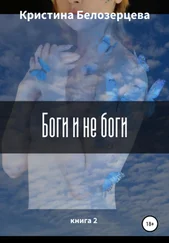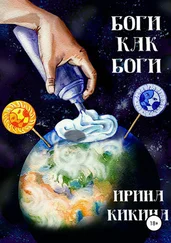В. Набоков - Боги
Здесь есть возможность читать онлайн «В. Набоков - Боги» весь текст электронной книги совершенно бесплатно (целиком полную версию без сокращений). В некоторых случаях можно слушать аудио, скачать через торрент в формате fb2 и присутствует краткое содержание. Жанр: Классическая проза, на русском языке, engl. Описание произведения, (предисловие) а так же отзывы посетителей доступны на портале библиотеки ЛибКат.
- Название:Боги
- Автор:
- Жанр:
- Год:неизвестен
- ISBN:нет данных
- Рейтинг книги:4 / 5. Голосов: 1
-
Избранное:Добавить в избранное
- Отзывы:
-
Ваша оценка:
- 80
- 1
- 2
- 3
- 4
- 5
Боги: краткое содержание, описание и аннотация
Предлагаем к чтению аннотацию, описание, краткое содержание или предисловие (зависит от того, что написал сам автор книги «Боги»). Если вы не нашли необходимую информацию о книге — напишите в комментариях, мы постараемся отыскать её.
На английский переведен Д. В. Набоковым.
На русском языке не публиковался.
Обратный перевод с англ. в 2011 г. Сакун С.В.
Боги — читать онлайн бесплатно полную книгу (весь текст) целиком
Ниже представлен текст книги, разбитый по страницам. Система сохранения места последней прочитанной страницы, позволяет с удобством читать онлайн бесплатно книгу «Боги», без необходимости каждый раз заново искать на чём Вы остановились. Поставьте закладку, и сможете в любой момент перейти на страницу, на которой закончили чтение.
Интервал:
Закладка:
Your eyes again grew murky. I realized, of course, what you were remembering. In a corner of our bedroom, under the icon, there is a colored rubber ball. Sometimes it hops softly and sadly from the table and rolls gently on the floor.
Put it back in its place under the icon, and then why don't we go take a walk?
Spring air. A little downy. See those lindens lining the street? Black boughs covered with wet green spangles. All the trees in the world arc journeying somewhere. Perpetual pilgrimage. Remember, when we were on our way here, to this city, the trees traveling past the windows of our railroad car? Remember the twelve poplars conferring about how to cross the river? Earlier, still, in the Crimea, I once saw a cypress bending over an almond tree in bloom. Once upon a time the cypress had been a big, tall chimney sweep with a brush on a wire and a ladder under his arm. Head over heels in love, poor fellow, with a little laundry maid, pink as almond petals. Now they have met at last, and are on their way somewhere together. Her pink apron balloons in the breeze; he bends toward her timidly, as if still worried he might get some soot on her. First-rate fable.
All trees are pilgrims. They have their Messiah, whom they seek. Their Messiah is a regal Lebanese cedar, or perhaps he is quite small, some totally inconspicuous little shrub in the tundra. ...
Today some lindens are passing through town. There was an attempt to restrain them. Circular fencing was erected around their trunks. But they move all the same. . . .
The roofs blaze like oblique, sun-blinded mirrors. A winged woman stands on a windowsill washing the panes. She bends over, pouts, brushes a strand of flaming hair from her face. The air is faintly redolent of gasoline and lindens. Who can tell, today, just what emanations gently greeted a guest entering a Pompeian atrium? A half-century from now no one will know the smells that prevailed in our streets and rooms. They will excavate some military hero of stone, of which there are hundreds in every city, and heave a sigh for Phidias of yore. Everything in the world is beautiful, but Man only recognizes beauty if he sees it either seldom or from afar. . . . Listen . . . today, we are gods! Our blue shadows are enormous. We move in a gigantic, joyous world. A tall pillar on the corner is tightly swathed in wet canvases, across which a paintbrush has scattered colored whirlwinds. The old woman who sells papers has curling gray hairs on her chin, and mad light-blue eyes. Unruly newspapers stick chaotically out of her pouch. Their large type makes me think of flying zebras.
A bus stops at its signpost. Upstairs the conductor ba-bangs with his palm on the iron gunwale. The helmsman gives his huge wheel a mighty turn. A mounting, labored moan, a brief grinding sound. The wide tires have left silver imprints on the asphalt. Today, on this sunny day, anything is possible. Look-a man has jumped from a roof onto a wire and is walking on it, splitting with laughter, his arms widespread, high over the rocking street. Look-two buildings have just had a harmonious game of leapfrog; number three ended up between one and two; it did not fully settle right away-I saw a gap below it, a narrow band of sunlight. And a woman stopped in the middle of a square, threw back her head, and started singing; a crowd gathered around her, then surged back: an empty dress lies on the asphalt, and up in the sky there's a transparent cloudlet.
You're laughing. When you laugh, I want to transform the entire world so it will mirror you. But your eyes are instantly extinguished. You say, passionately, fearfully, "Would you like to go ... there? Would you? It's lovely there today, everything's in bloom. . . ."
Certainly it's all in bloom, certainly we'll go. For aren't you and I gods? ... I sense in my blood the rotation of unexplorable universes. . . .
Listen-I want to run all my life, screaming at the top of my lungs. Let all of life be an unfettered howl. Like the crowd greeting the gladiator.
Don't stop to think, don't interrupt the scream, exhale, release life's rapture. Everything is blooming. Everything is flying. Everything is screaming, choking on its screams. Laughter. Running. Let-down hair. That is all there is to life.
They are leading camels along the street, on the way from the circus to the zoo. Their plump humps list and sway. Their long, gentle faces are turned up a little, dreamily. How can death exist when they lead camels along a springtime street? At the corner, an unexpected whiff of Russian foliage; a beggar, a divine monstrosity, turned all inside out, feet growing out of armpits, proffers, with a wet, shaggy paw, a bunch of greenish lilies-of-the-val ... I bump a passerby with my shoulder. . . . Momentary collision of two giants. Merrily, magnificently, he swings at me with his lacquered cane. The tip, on the back-swing, breaks a shopwindow behind him. Zigzags shoot across the shiny glass. No-it's only the splash of mirrored sunlight in my eyes. Butterfly, butterfly! Black with scarlet bands. ... A scrap of velvet. . . . It swoops above the asphalt, soars over a speeding car and a tall building, into the humid azure of the April sky. Another, identical butterfly once settled on the white border of an arena; Lesbia, senator's daughter, gracile, dark-eyed, with a gold ribbon on her forehead, entranced
by the palpitating wings, missed the split second, the whirlwind of blinding dust, in which the bull-like neck of one combatant crunched under the other's naked knee.
Today my soul is filled with gladiators, sunlight, the world's din. . . .
We descend a wide staircase into a long, dim underground chamber. Flagstones resound vibrantly under our steps. Representations of burning sinners adorn the gray walls. Black thunder, in the distance, swells in velvet folds. It bursts forth all around us. We rush headlong, as if awaiting a god. We are packed inside a glassy glitter. We gather momentum. We hurtle into a black chasm and speed with a hollow din far underground, hanging on to leather straps. With a pop the amber lamps are extinguished for an instant, during which flimsy globules burn with a hot light in the dark-the bulging eyes of demons, or perhaps our fellow passengers' cigars.
The lights come back on. Look, over there-the tall man in a black overcoat standing by the car's glass door. I faintly recognize that narrow, yellowish face, the bony hump of his nose. Thin lips compressed, attentive furrow between heavy brows, he listens to something being explained by another man, pale as a plaster mask, with a small, circular, sculpted beard. I am certain they are speaking in terza rima. And your neighbor, that lady in the pale-yellow coat sitting with lowered lashes-could that be Dante's Beatrice? Out of the dank nether world we emerge anew into the sunlight. The cemetery is on the distant outskirts. Edifices have grown sparser. Greenish voids. I recall how this same capital looked on an old print.
We walk against the wind along imposing fences. On the same kind of sunny, tremulous day as this we'll head back north, to Russia. There will be very few flowers, only the yellow stars of dandelions along the ditches. The dove-gray telegraph poles will hum at our approach. When, beyond the curve, my heart is jabbed by the firs, the red sand, the corner of the house, I shall totter and fall prone.
Look! Above the vacant green expanses, high in the sky, an airplane progresses with a bassy ring like an aeolian harp. Its glass wings are glinting. Beautiful, no? Oh, listen-here is something that happened in Paris, about 150 years ago. Early one morning-it was autumn, and the trees floated in soft orange masses along the boulevards into the tender sky-early one morning, the merchants had assembled in the marketplace; the stands filled with moist, glistening apples; there were whiffs of honey and damp hay. An old fellow with white down in his auricles was unhurriedly setting up cages containing various birds that fidgeted in the chilly air; then he sleepily reclined on a mat, for the auroral fog still obscured the gilt hands on the town hall's black dial. He had scarcely gone to sleep when someone started tugging at his shoulder. Up jumped the oldster, and saw before him an out-of-breath young man. He was lanky, skinny, with a small head and a pointed little nose. His waistcoat-silvery with black stripes-was buttoned askew, the ribbon on his pigtail had come undone, one of his white stockings was sagging in bunched wrinkles. "I need a bird, any bird-a chicken will do," said the young man, having given the cages a cur* sory, agitated glance. The old man gingerly extracted a small white hen, which put up a fluffy struggle in his swarthy hands. "What's wrong-is it sick?" asked the young man, as if discussing a cow. "Sick? My little fish's belly!" mildly swore the oldster.
Читать дальшеИнтервал:
Закладка:
Похожие книги на «Боги»
Представляем Вашему вниманию похожие книги на «Боги» списком для выбора. Мы отобрали схожую по названию и смыслу литературу в надежде предоставить читателям больше вариантов отыскать новые, интересные, ещё непрочитанные произведения.
Обсуждение, отзывы о книге «Боги» и просто собственные мнения читателей. Оставьте ваши комментарии, напишите, что Вы думаете о произведении, его смысле или главных героях. Укажите что конкретно понравилось, а что нет, и почему Вы так считаете.


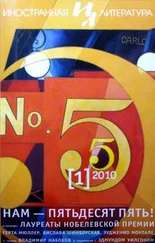

![Эрих фон Дэникен - Боги майя [День, когда явились боги]](/books/230700/erih-fon-deniken-bogi-majya-den-kogda-yavilis-bo-thumb.webp)
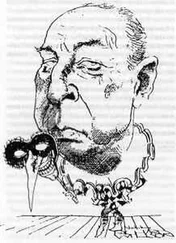
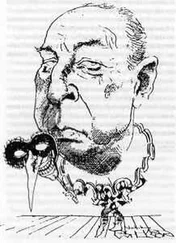
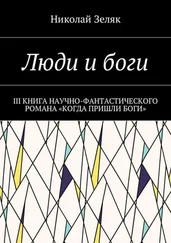
![Александра Лисина - Когда темные боги шутят [1. Когда темные боги шутят, 2. Шепот темной стороны]](/books/392230/aleksandra-lisina-kogda-temnye-bogi-shutyat-1-kogd-thumb.webp)
